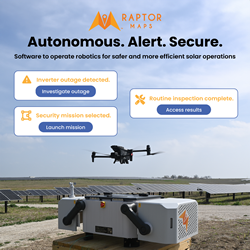GroSolar hits home run with Fenway installation
The Boston Red Sox formally unveiled a solar heating system, which consists of 28 Heliodyne solar hot water collectors and four 400-gallon storage tanks tied to the historic ballpark's water system.
WHITE RIVER JUNCTION The left field wall might not be the most impressive "green" feature at Fenway Park at least not from an environmental point of view.
On Monday, the Boston Red Sox formally unveiled a solar heating system, which consists of 28 Heliodyne solar hot water collectors and four 400-gallon storage tanks tied to the historic ballpark's water system.
While Heliodyne Inc. of Richmond, Calif., manufactured the panels, the system was installed by groSolar a Vermont-based company.
Between May 7-12, groSolar installed the panels through the media level on the fifth floor. The panels face south and will only be covered by shadow for a few hours during the winter solstice. The hot-water heaters are located in a mechanical room on the roof in close proximity to the panels.
The system is expected to be fully operational this week.
The solar-heated water will be used by both Fenway and the restaurants on the lower level of the park, and will reduce the gas used to heat the park's water by about one-third. This initiative is expected to reduce the park's carbon dioxide output by 18 tons every year.
According to the Bonneville Environmental Foundation of Portland, Ore., which advised the Red Sox during the solar installation, the reduction in carbon dioxide output is the environmental equivalent of planting nearly 5 acres of trees or not driving a car 43,611 miles.
Fenway's solar panel installation is part of a citywide initiative called Solar Boston a 2-year, $600,000 plan intended to increase the city's solar power output by 50 times its current level by 2015.
Jeff and Dori Wolfe founded groSolar in 1998 in their home in Strafford. The Wolfes both of whom have degrees in engineering and backgrounds in large building design founded the White River Junction company to bring renewable energy to more people, originally focusing on people living "off the grid" but with the advancement in renewable technology the company began to take on more "on-grid" projects.
Today, groSolar specializes in large-scale solar energy installations including most recently Harvard Business School in Cambridge, Mass., and a Whole Foods store also in Massachusetts.
Despite their previous high-profile work, Fenway Park was a special project for the company, said Kelli C. Pippin, groSolar's director of marketing.
"We're no strangers to large commercial projects, but this one is dear to our hearts because it's Fenway," Pippin said.
In the near future, Pippin said, groSolar will be working with Living Future, a 1,300-acre farm located at the base of Camel's Hump in Huntington that is working toward a renewable way of life.
GroSolar also will be featured in an episode of the PBS home remodeling television show "This Old House" as a solar energy system is installed in a home in Weston, Mass.
Pippin said she expected the episode to air this fall.
"We're just happy to be doing what the world needs right now, and that's help create renewable energy," Pippin said. "It's great that even in the sports world there's this call to help the planet."
Featured Product

Raptor Maps - The integrated operating system for end-to-end solar management
Operate autonomous drones and other robotics technology on your solar farms with Raptor Maps' robotics operations platform. Our end-to-end solution allows you to build and schedule data collection missions, to analyze collected data through our analytics engine, and to address identified issues through our remediation intelligence suite. From construction monitoring to substation inspections to SCADA-alert generation missions, Raptor Robotics gives your team unparalleled insights into the health and status of your project. Improve the safety, efficiency, and scale of your operations with Raptor Robotics.
